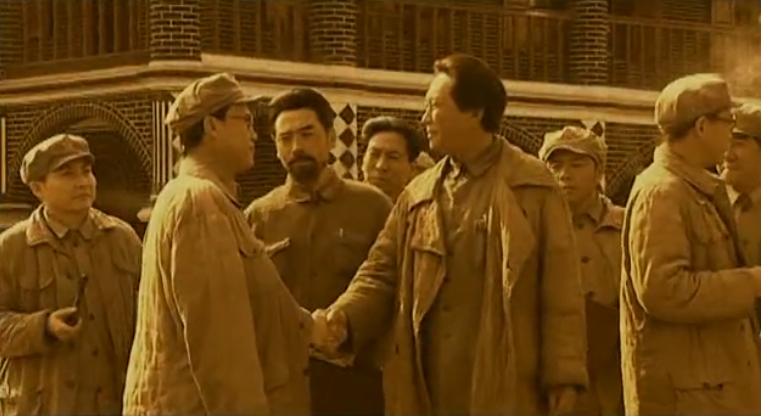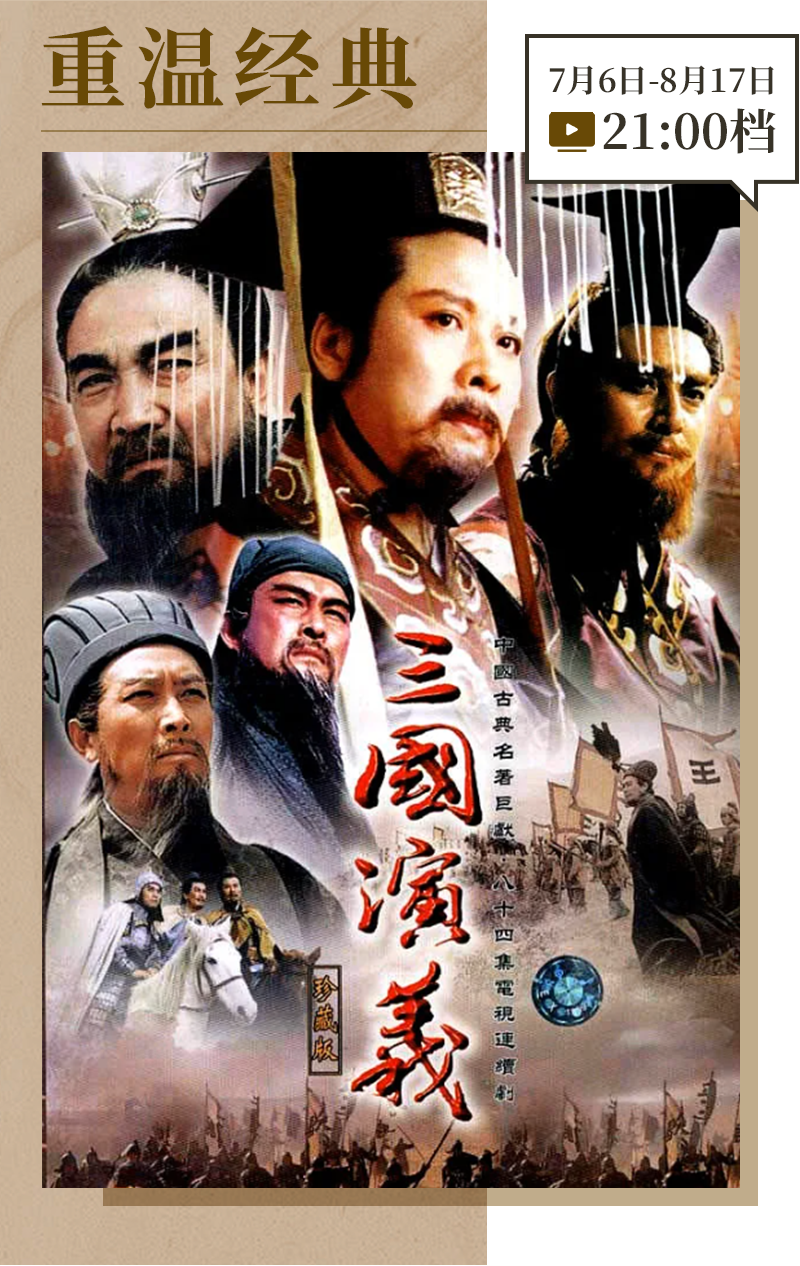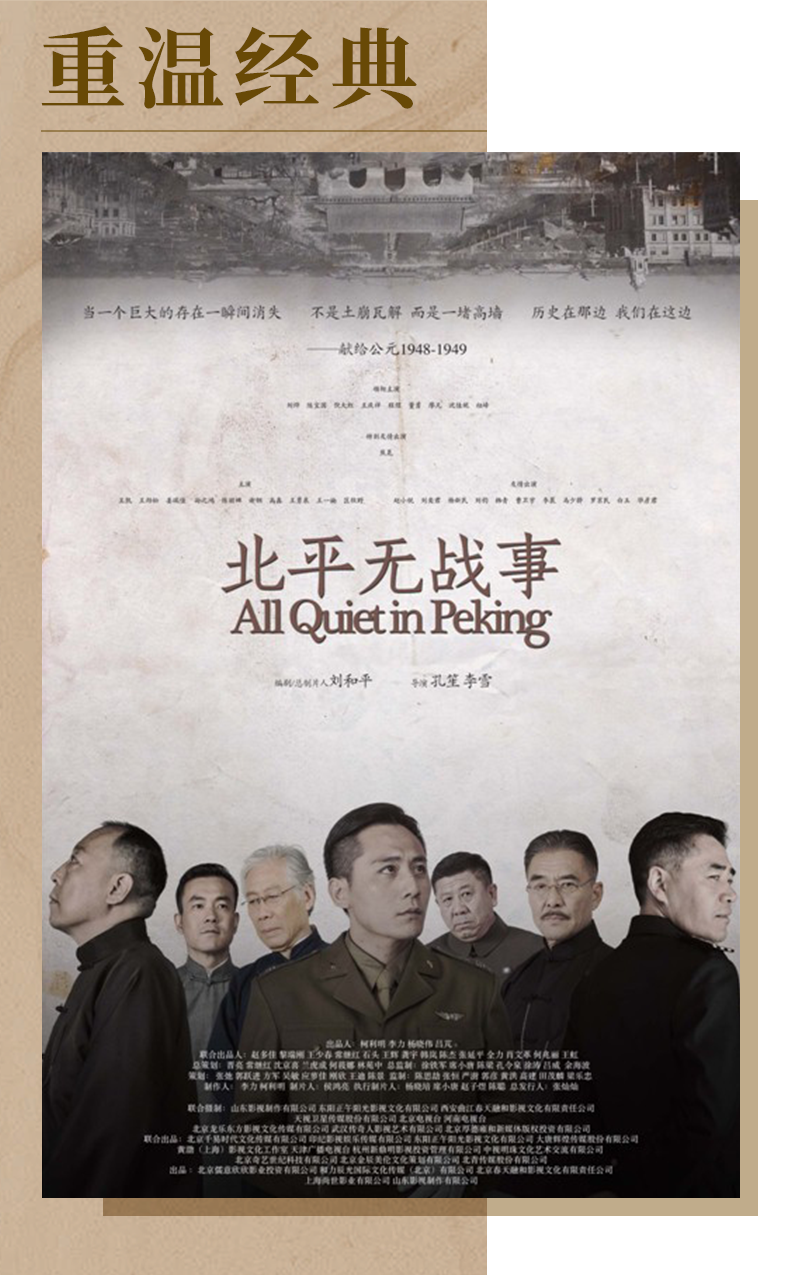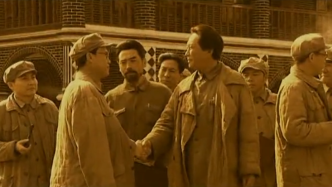
Editor's note: On the occasion of the 103rd anniversary of the founding of the Communist Party of China, the long-form TV series "The Long March" was broadcast on the "Revisiting Classics" channel. This TV series, which presents the Long March "this earth-shaking revolutionary feat" in a panoramic, all-round and artistic way, has set a quality benchmark for the creation of similar dramas. The drama won the first prize of the 22nd China TV Drama "Flying Apsaras Award" for long-form TV series, and Wang Chaozhu also won the Outstanding Screenwriter Award for the drama.
We have republished the creative talk of Wang Chaozhu, the screenwriter and executive producer of the drama, published in the 9th issue of China Television magazine in 2002. Why is he only 60% satisfied with the drama? Why does he think that the creative process can "cleanse the soul" of the entire crew?
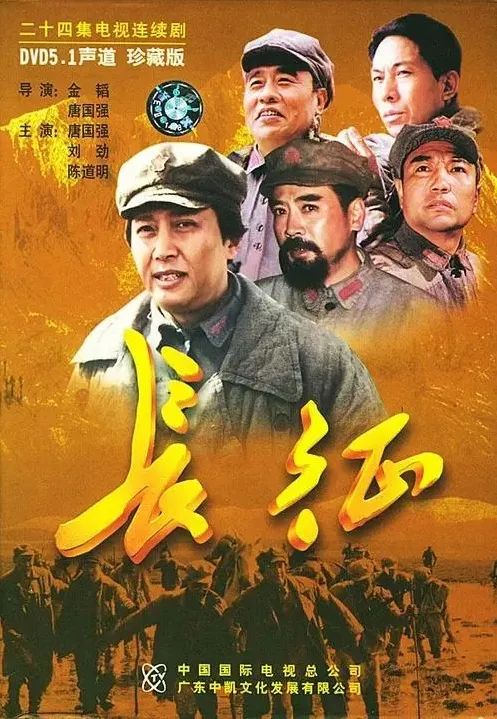
As a screenwriter:
Why must I write a TV series "Long March"
The Long March itself is a book that can never be fully deciphered. There has never been a (strategic action) like the Long March in the history of wars in ancient and modern times, both in China and abroad. It is a miracle in human history. In 1996, the movie version of "The Long March" was released. Due to many factors, I think the movie version of "The Long March" deviated from my original intention. More importantly, the movies such as "A Thousand Mountains and Rivers" and "Four Crossings of the Chishui River" only showed some historical fragments of the Long March. Only in the form of a TV series can this period of history be condensed and reproduced, and the profound brilliance of "The Long March" can be fully displayed.
I think there are three highlights in creating "Long March". First, the Long March is a miracle, but it is not enough to describe miracles alone. We should focus on the people who created miracles and show how they created miracles. Such a subject matter itself is fresh and has a high point of view. Naturally, it surpasses other war films, and has more shocking subject matter and artistic conquering power. Second, the revolutionary predecessors created miracles with revolutionary practice. We are not writing about the appearance of creating this miracle, but why and what they rely on to create this miracle. "Long March" wants to show the spiritual power of this group. The third is the personal charm of the leader. We want to show a real, relatively authoritative historical figure in the specific historical period of the Long March. We do not falsify history, because the truth of history is extremely shocking.
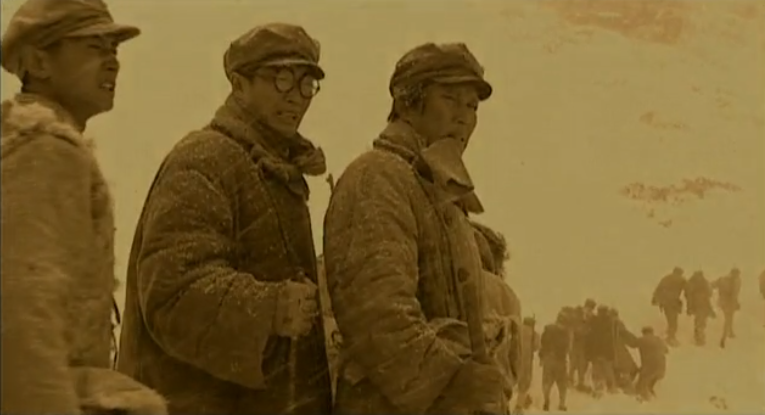
Shooting process:
Retracing the Long March, cleansing the souls of all crew members
After the film was broadcast, many people said, "It's so real, the acting is great, and it's so realistic!" I have to say that the actors don't need to build up their emotions. When you climb up a 5,000-meter snow-capped mountain, you can't breathe if you take just two more steps. Your feet feel like they're filled with lead. Only when you're in that environment and shoot it can it be real.
We climbed the snow mountain three times in total and lived on the grassland at an altitude of 5,000 meters for dozens of days. It rained below and snowed above. The air was very thin. The crew members had to carry oxygen bags and lie on the ground after walking a few steps. Huang Wei, the actress who played Deng Yingchao, took the initiative to ask to shoot a scene of falling into a quagmire. After jumping, she fainted. After coming down from the snow mountain and before reaching the grassland, the actress who played Cai Chang got hepatitis. Many girls lost one-third of their hair due to lack of oxygen. Later, only the actress who played Zhu De's wife climbed the snow mountain again. Many actresses asked to take out their own royalties to reshoot on the snow mountain. That scene was really touching!
The scene of crossing the grassland was filmed in October. We deeply understood why Chairman Mao set the time of crossing the grassland in mid-August, because once September came, the grassland would freeze, which would be extremely difficult to walk on. When it came to filming the rainy scene, the artificial rain fell on the ground and turned into mud, and everyone had to walk in the mud under the "rain". Although the Long March was filmed in the spirit of the Long March, we were still worried about the danger of getting stuck in the mud. It was Jin Tao and Tang Guoqiang who took the lead in jumping down in cotton-padded clothes. Under their leadership, the other actors jumped down, and the scene of everyone singing the Internationale on the grass hand in hand in the rain was completed.
That was the most exciting part of the whole play, and it is a classic. When filming this part, the singing came completely from the heart. The actors were stepping on the mud, unable to stand or walk steadily, and their whole bodies were soaked by the cold muddy water. It was really miserable. What should they do? But everyone said that they had to sing the Internationale at this time, so they jumped into the water, linked their hands, and sang "Get Up..." very naturally. The scene was so touching that no dubbing later could be as good as the effect at that time.
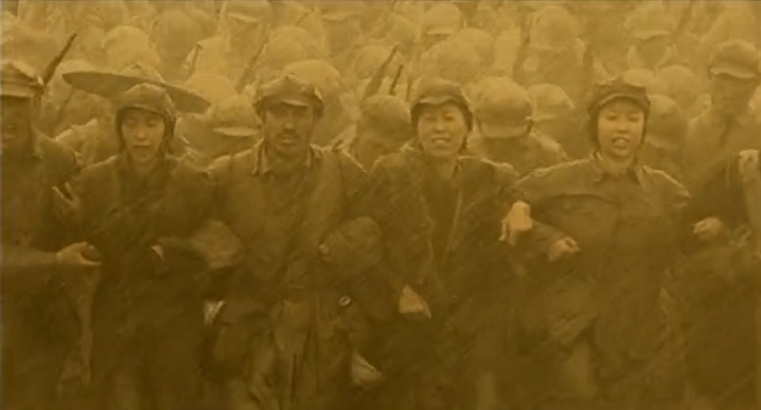
Broadcast effect:
We have achieved 60% of our expectations. We can definitely do better.
I think the show has achieved 60% of my expectations. The biggest achievement of the show is that it has reawakened the memories of that generation and, through artistic reproduction, has boosted the Chinese nation's spirit of overcoming all difficulties.
Of course, this drama has some regrets, but film and television art is an art of regrets. Any film and television work will never achieve 100% satisfaction. I think if a TV series can achieve 60%-70% of its (target) positioning, it can be called a successful work. Many people think that "Long March" is a classic. For example, the filming of the war and the shaping of the characters can be used as teaching materials. I admit this, but we can do better.
As a serious artist, he will examine this work carefully, and more importantly, he will see where it failed. If he thinks his work is successful and becomes complacent, then his life will be difficult and he will fall one day.
As a Producer:
"Filming the Long March with the spirit of the Long March" created several "mosts" in the history of TV dramas
If we talk about creating "bests", "The Long March" created several "bests": First, the real-life shooting, no crew actually walked through the snow-capped mountains and grasslands. Second, there was no accident in so many real-life shootings, because we all followed the military method at the beginning, with several people divided into a group, and several groups had a safety officer. The final result was good, and there were no casualties in so many explosion scenes. This is the result of the joint efforts of the whole crew. Third, everyone was very united, and all crew members gave in on the issue of fame and fortune. The phrase "filming the Long March in the spirit of the Long March" brought the crew together under such a banner.
As a producer, I have something to say. The producer must first choose a good script. If the script is good, even if the producer's management ability is weak, the play will not be too bad. "The foundation of a play" must be taken seriously. To become an excellent producer, you must also have the following qualities: you must have the keen vision of a politician, be able to see the direction and recognize the overall situation; you must also have the wisdom of an artist, be able to have a unique vision, and be able to grasp the needs of the people; finally, you must have the shrewd vision of an entrepreneur, be able to see the market clearly, and be good at business management.
